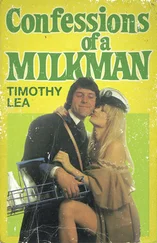She sought me out and started in on the conciliatory note. This was coaxing. This was ‘why don’t you give up this man who’s too old for you anyway, who might impress you now but one day you’ll see he’s just another of them selfish “cake and eat it” fellas? Why not instead take up with one of them nice wee boys from the area, suited to and more consistent with your religion, your marital status and your age?’ Ma’s understanding of the nice wee boys was that they were the right religion, that they were devout, single, preferably not paramilitaries, overall more stable and durable than those – as she put it – ‘fast, breathtaking, fantastically exhilarating, but all the same, daughter, early-to-death rebel men’. ‘Nothing stops them,’ she said, ‘till death stops them. You’ll regret it, daughter, finding yourself ensnared in the underbelly of all that alluring, mind-altering, unruly paramilitary nightlife. It’s not all it seems. It’s on the run. It’s war. It’s killing people. It’s being killed. It’s being put in charge. It’s being beaten. It’s being tortured. It’s being on hunger strike. It’s having yourself made over into an entirely different person. Look at your brothers. I’m telling you, it’ll end badly. You’ll hit the ground with a bump if he doesn’t take you to death first with him. And what of your female destiny? The daily round? The common task? Having babies with the babies having a father and not some tombstone you take them to, to visit once a week in the graveyard? Look at yer woman round the corner. You could say she loved all her saturnine husbands, but where are they now? Where are most of those women’s brooding, single-minded, potently implacable husbands? Again, six feet under in the freedom-fighters’ plot of the usual place.’ At this she turned to the duties of marriage, to the folly of confusing yearning for romance with real-life proper female aims and objectives. Marriage wasn’t meant to be a bed of roses. It was a divine decree, a communal duty, a responsibility, it was acting your age, having right-religion babies and obligations and limitations and restrictions and hindrances. It was not failing to be proposed to then ending up, yellowed and desiccated, dying some timid but determined spinster on some long-forgotten, dusty, spidery shelf. Never would she budge from this position, though often as I grew older I’d wonder if this really was – in the undergrowth of her own recesses – truly what ma believed of women and of their destiny herself? And now she was back to the solution, to the nice wee boys, to those conducive to my being properly matched and proportioned. Here she ticked names off her fingers of sample ones from the area to give me a taster of the kind she approved of. Going by this list, I could have guaranteed, had ma been open to hearing, that none of them were in any way as matchable and proportionable as she described. Some weren’t nice for a start. Also, an awful lot weren’t devout and not a few were already married. A smaller number were living unmarried with their girlfriends in ‘the red-light street’ as the community called it and that ‘dot dot dot’ street as certainly ma, when she should come to hear of it, would call it. Others were renouncers or reputed to be renouncers, deeply committed either to furthering a personal agenda through a political agenda, or else genuinely devoted to the political-problems cause. So ma could pick them without knowing she was picking them, but I chose not to enlighten because I was still in my defensive, protective, ‘giving nothing away’ mode. This was a deliberate withholding on my part because never had it been in my remit not to withhold from my mother because never had it been in her remit to get my message and to take me at my word. It was only when she gave up suggesting ‘that nice wee boy, now what’s his name? – the one who developed that tic of referring to himself in the first person plural – ach, you know, Somebody McSomebody’ as a candidate for me to marry and instead launched into ‘Your sister says her husband says that he heard everybody else say that you—’ that I felt my temper rising. Here we go. ‘He’s a hefty toad, ma,’ I said. ‘Bastard of the first batch. Don’t go listening to him.’
Ma winced. ‘I wish you wouldn’t use that language, that blue french language. It wonders me how comes it you two use that language when none of your other sisters use it.’ She meant me and third sister and it was true, we did use it, though third sister was more into the french of it than me. ‘Gee-whizz, ma,’ I said, and I said this without thinking, without attending to the fact – for it had been a fact – that I was angry and dismissive and wearied by my mother, frustrated at her living on another planet and insisting in her ignorance that I come live on it with her; also, that I considered her a stereotype, a caricature, something, of course, I would never become myself. So I said ‘gee-whizz’ and it was rude, absently rude. Had I considered though, probably I’d have thought she wouldn’t catch onto it, wouldn’t understand the scorn in it, that my dismissal of her would pass right over her head. But ma did catch on, did understand, and unexpectedly she dropped that comical role, the ‘mamma anxious for wedding bells’ role – a cliché gone away, fallen away – and her real self stepped forward. Now, full of bones and blood and muscle and strength and with a sudden self-definition which included anger, a whole lot of anger, she leaned over and took hold of me by the upper arm.
‘Don’t you be coming out with your proud words to me, your superior ways, your condescension, your wee belittling sarcasms. Is it that you think I haven’t lived, daughter? Is it that you think I haven’t intelligence, haven’t learned anything in all the years I’ve been here? Well, I’ve learned things, I know things, and I’ll tell you what one of them is. It’s one thing to be off-colour in your talk, and another, worse thing to be full of yourself and mocking of other people. I’d rather you came out with your filthy, unfitting language for the rest of your life than for you to turn out one of them cowardly people who can’t speak their minds but won’t hold their peace and instead mumble behind hands and get their fights out in sneakery and in whispers. Those ones aren’t as clever or as respectable, daughter, as in their own heads and in their dramatic love of themselves they think they are. Attend to your words and your tone. I’m disappointed. Thought I reared you to better manners than that.’ She dropped my arm then, and made to walk away which was amazing, something that had never happened between us before. Usually I’d be the one who’d had enough, who’d become indignant, pronounce last words then, in exasperation, turn and walk from her. This time though, I stepped after and I put my hand out to stay her. ‘Ma,’ I said, though with no idea of what was to come next.
I didn’t know shame. I mean as a word, because as a word, it hadn’t yet entered the communal vocabulary. Certainly I knew the feeling of shame and I knew everybody around me knew that feeling as well. In no way was it a weak feeling, for it seemed more potent than anger, more potent than hatred, stronger even than that most disguised of emotions, fear. At that time there was no way to grapple with or transcend it. Another thing was that often it was a public feeling, needing numbers to swell its effectiveness, regardless of whether you were the one doing the shaming, the one witnessing the shaming, or the one having the shame done unto you. Given it was such a complex, involved, very advanced feeling, most people here did all kinds of permutations in order not to have it: killing people, doing verbal damage to people, doing mental damage to people and, not least, also not infrequently, doing those things to oneself.
Читать дальше











